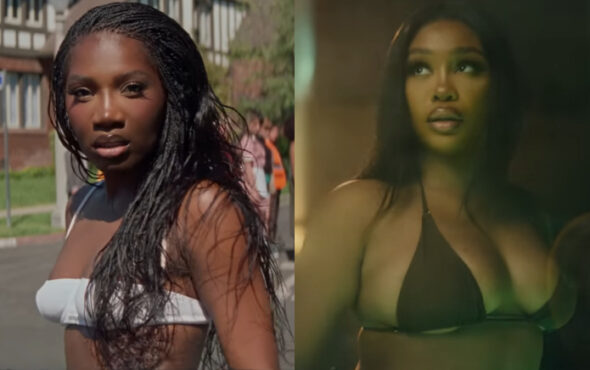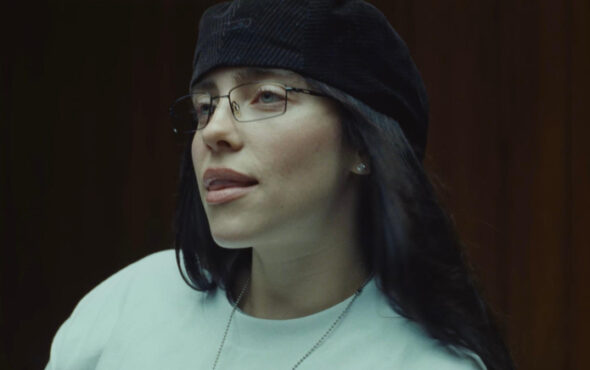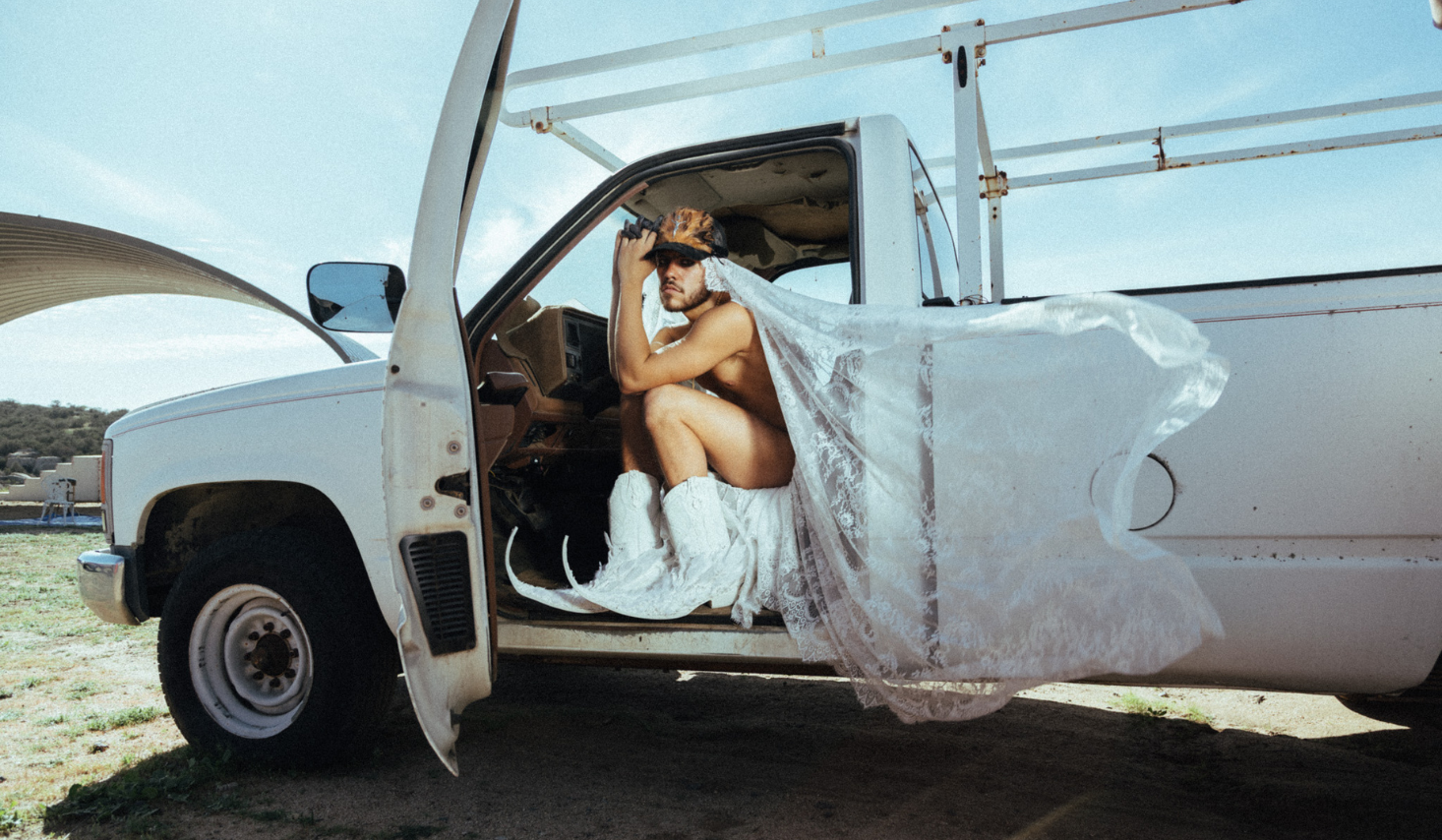
Cain Culto is making fearless, unapologetic music that confronts the institutions that once tried to contain him.
Since breaking out with the genre-bending ‘KFC Santería’ – and its joyfully defiant remix with Sudan Archives – Culto has been pushing pop into bolder, gayer and more spiritually subversive territory. Blending Appalachian grit with New Orleans bounce, his work is equal parts political statement and personal celebration – a sound that refuses to be ignored.
As he embarks on the release of his debut album, Culto speaks exclusively with Gay Times about queering sacred symbols, building community through authenticity and why offending the right people can be a true act of liberation.
Congrats on your ‘KFC Santería’ remix and stunning COLORS Studios performance! How does it feel to see the song connecting with such a wide audience?
It’s been so pleasantly unexpected! I assumed that because the topics in the song are so niche, it wouldn’t reach as far as it has. It’s taught me to continue prioritizing authenticity over relatability – there seems to be more space for boldness when it comes to storytelling in music now more than ever.
You’ve said the original takes inspiration from the sounds of the Kentucky Appalachians and your upbringing in Florida. What inspired your remix with Sudan Archives and how did the collaboration come together?
The production on the remix draws from New Orleans Bounce – there’s something so joyful about that genre. I felt we needed protest music that had resistance wrapped in this sound of hope and celebration. I wanted everything to feel more in your face, pushing the production to hit harder while making the political and spiritual themes that exist in the original more overt.
I’ve been a big fan of Su for a while, and we connected over socials after ‘KFC’ dropped. I think the collaboration made a lot of sense with both of us growing up in the South and experimenting with the fiddle in the way we do.
As we’ve come to expect from you, the track is very gay, with lyrics such as “I only f**k with gay boys, theys, bad b**ches and d**es.” How does your unapologetically queer self and your unfiltered lyrics help you connect with your fans?
Growing up Christian, for so much of my life, my self-expression had to take forms that were palatable for my church community and family. I was conditioned to place so much importance on piety, politeness and being proper. Perception mattered more than intention.
Now, in an attempt to liberate myself from that way of thinking, I try to intentionally say the polarizing things that feel truest to me. I think queer people are drawn to the unapologetic nature of my lyrics. They know where I stand on issues, so it’s easier to connect with them on a deeper level.
We’re seeing lots of love for you right now on TikTok and Instagram! Can you tell us more about your fans, and what that relationship looks like? On and off stage?
It’s been so beautiful bonding with fans – I welcome all the kindness and connections. I’ve often felt rejected by my community – it’s been a huge theme in my life. I had to learn to be okay standing on my own with little support. So now that I feel all this love from fans online, I’m very grateful.
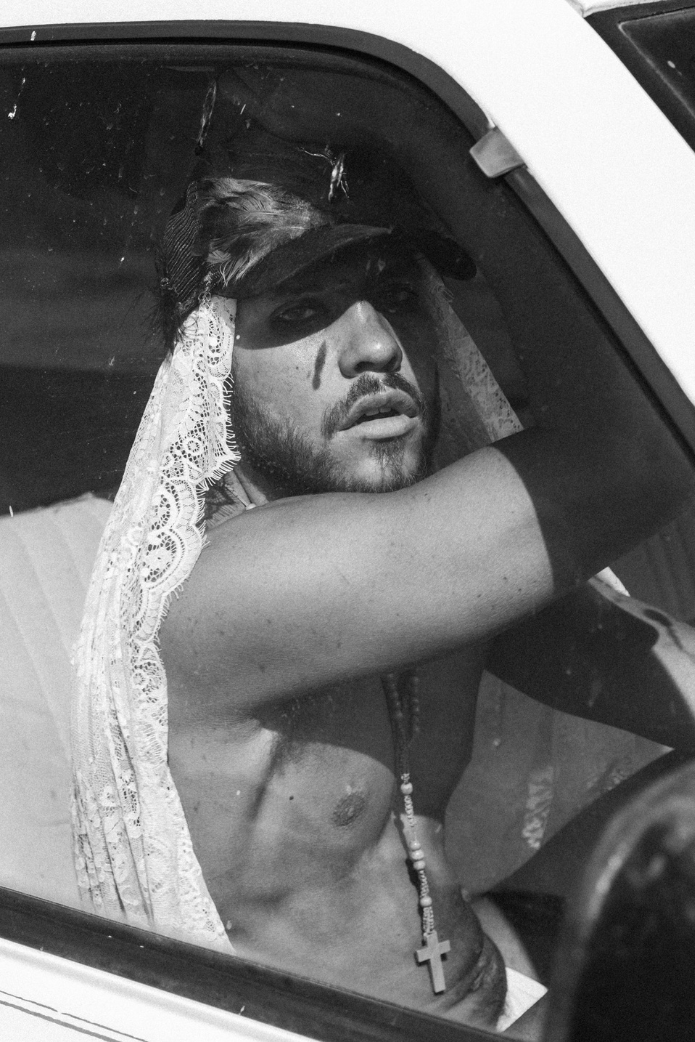
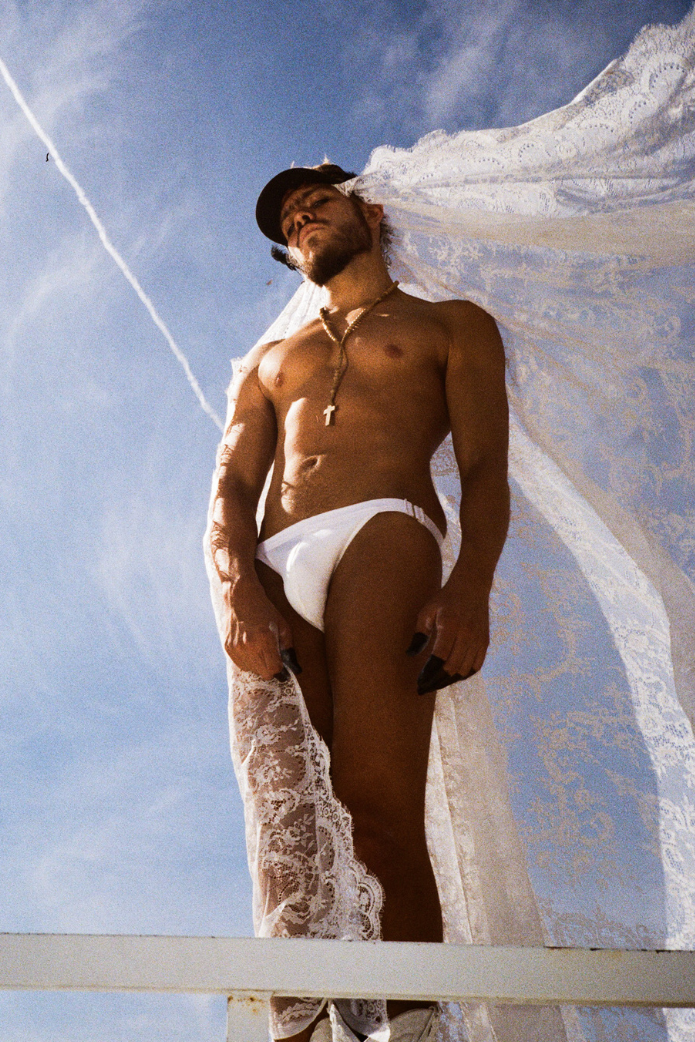
You’ve described Cain Culto as a persona that allows you to explore your queerness in ways you weren’t able to before. How has this character helped you in your creative process?
I’m bolder as Cain. In my personal life I’m very much an introvert – my natural demeanor is comfortable taking up less space. I don’t need to be the center of attention in social settings. But when I’m Cain, I am looking to command a space. When I have something to say, something of value to contribute, I let Cain take over.
You’re as much a visual storyteller as a sonic one, often reclaiming cultural symbols that tie into your own history. Why is this important to you?
Symbols carry so much power. They can inspire and activate change. Sometimes, they represent aspects where our culture is stagnant or actively rejecting progress, and I’m interested in the queering of these archetypes and symbols to move us towards a more liberated future.
I want my heritage and identity to be represented in pop culture in a specific way, and if I don’t see it, I feel the responsibility to become it. Specifically, fashion is one of the main mediums I use to communicate these statements of cultural reclamation. Sometimes style, with the intentional use of symbolism, can impact in a way words cannot.
Your stage name is a nod to religious rebellion. Growing up between evangelical and Catholic spaces in the South, how has your background influenced your artistry?
I’m a mystic at my core. I think religion was just the most accessible vehicle for me to explore those spiritual inclinations. I became religious with good intentions – to become a better person and lessen the suffering in the world, but I quickly realised how destructive religious institutions are on the inside. I had to fully immerse myself in it with all sincerity before I felt qualified to critique it.
That included getting a degree in biblical studies and devoting years of my life to prayer and community church service. I tried so hard to reform my evangelical communities from the inside, but it became clear my perspectives were unwanted. My motivation for creating art still comes from that same intention I had for embracing religion. My desire to stand with the marginalised in society ultimately forced me out of American evangelicalism.
Through Cain, you seem to have broken free of shame and guilt around your identity. Do you have any advice for LGBTQIA+ people – especially young people or those raised in religious environments – who may be struggling to stand in their power and live authentically at this turbulent time?
Trust the quiet knowing within yourself. I was so conditioned by religion to ignore my gut instinct. Making yourself small and powerless for the sake of keeping the peace rarely leads to anything good. Our lives are so short – so think of your life as a movie and pick the most exciting plot.
I could have saved myself so many years of pain by just choosing myself sooner and getting comfortable with the feeling of letting others down. The people you lose along that journey will be replaced with deeper and more profound family and friendships. When you confront the fear of being alone, you find that somehow, the right people always arrive at the right time.
Don’t be afraid to offend others. The presence of a truly empowered person is offensive to those who hold tight to their position of disempowerment. Underneath all that offense is simply fear and resentment for their inability to access the bravery you have. Don’t internalise the problems they have with themselves.
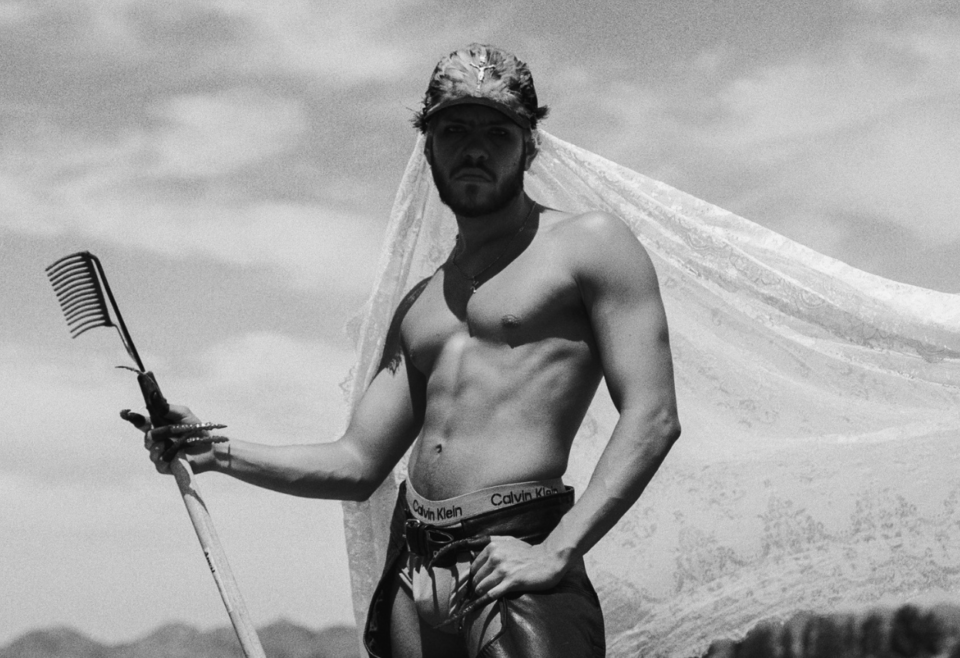
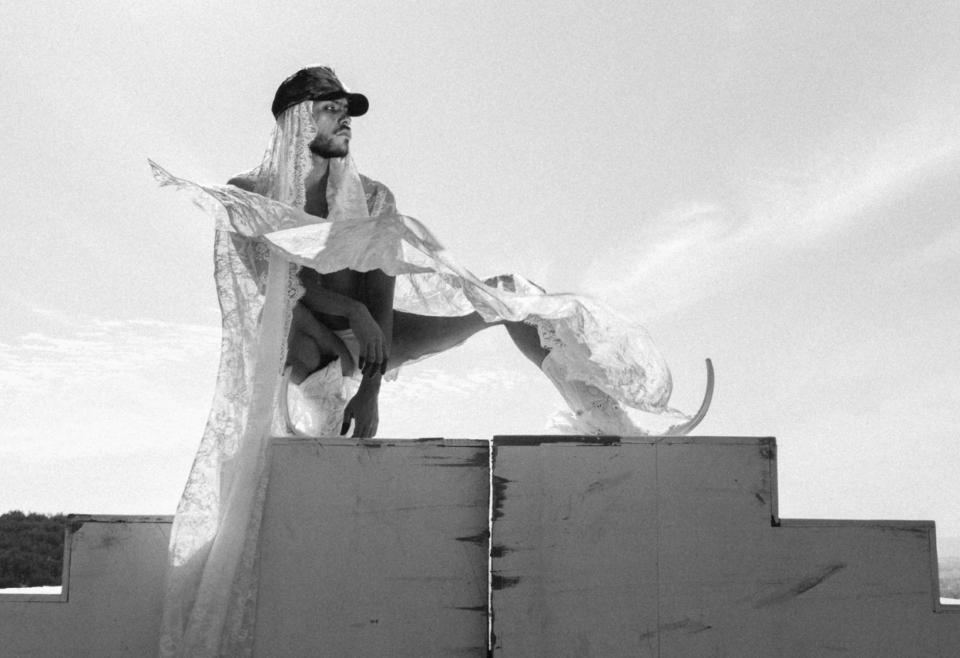
For those who are unaware of you and your music, what do you want them to know? Why should Cain Culto be their new favourite artist?
I intend to make art that is so hyper-authentic that only I could truly release it. With my new songs, I’m trying to explore sounds in pop music that I’ve been craving to hear for a while. I hope my music brings joy and connection to people, but I also place equal importance on writing my truth unapologetically – regardless of whether it ostracises some of my listeners. I believe the political climate of our time demands that kind of raw artistry.
Last but not least: what’s next for you? What are you manifesting right now?
I’m rolling out my debut album. I’ve been putting so much work into this concept record for the last two years, and I’m so excited to get it out in the world. I’m also playing a lot more shows now and want to keep expanding the scale of my live performances. I want to travel outside of the US as soon as possible.
I’m manifesting collabs with my favorite artists. I want to write with, and for my heroes. I’m feeling very ambitious with my goals, and want to continue devoting myself entirely to my art. I’m ready to go full-throttle-popstar-machine-mode these next couple of years and push this artist project as far as possible.
‘KFC Santería’ (feat. Sudan Archives) is out now.

